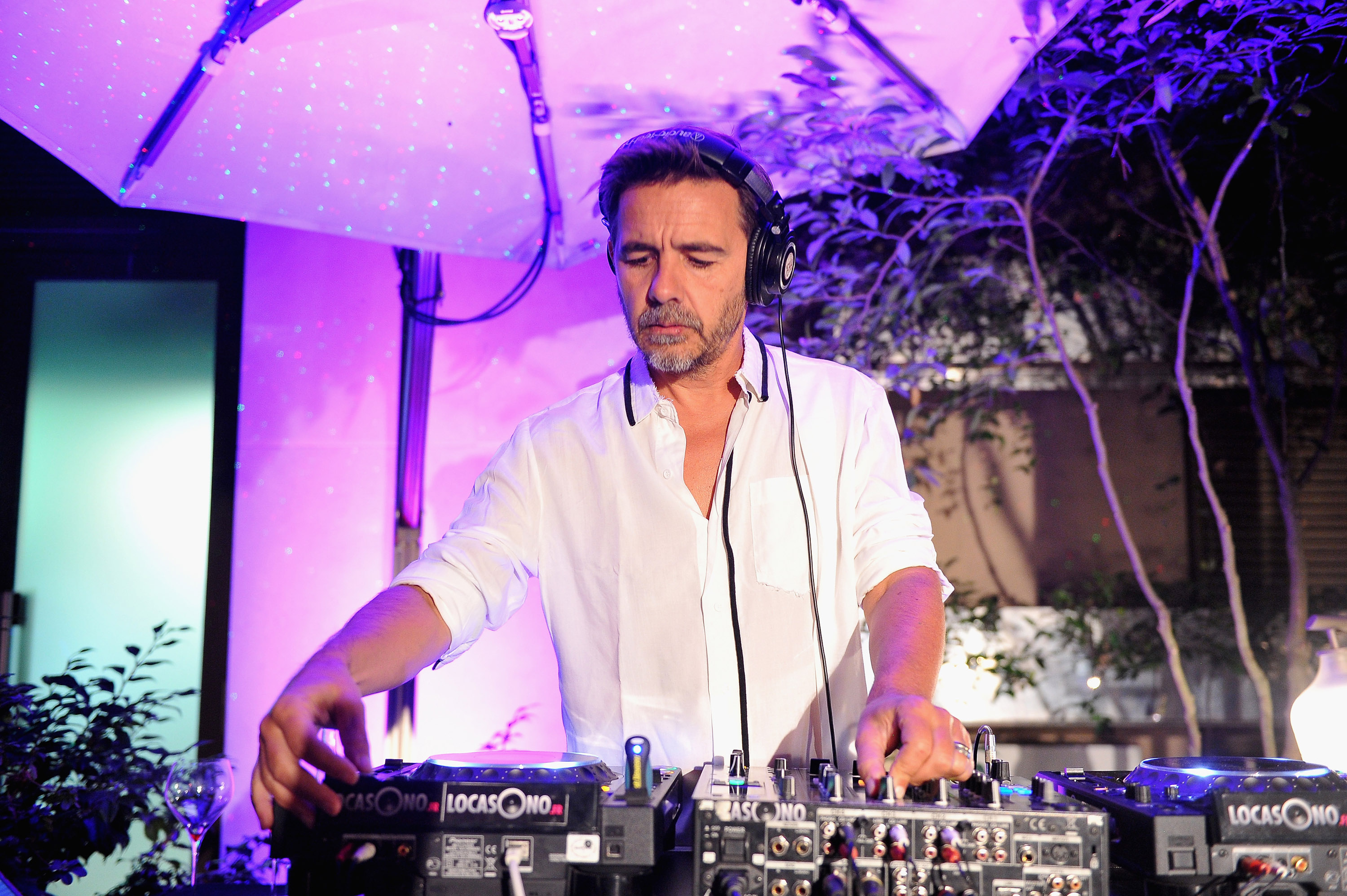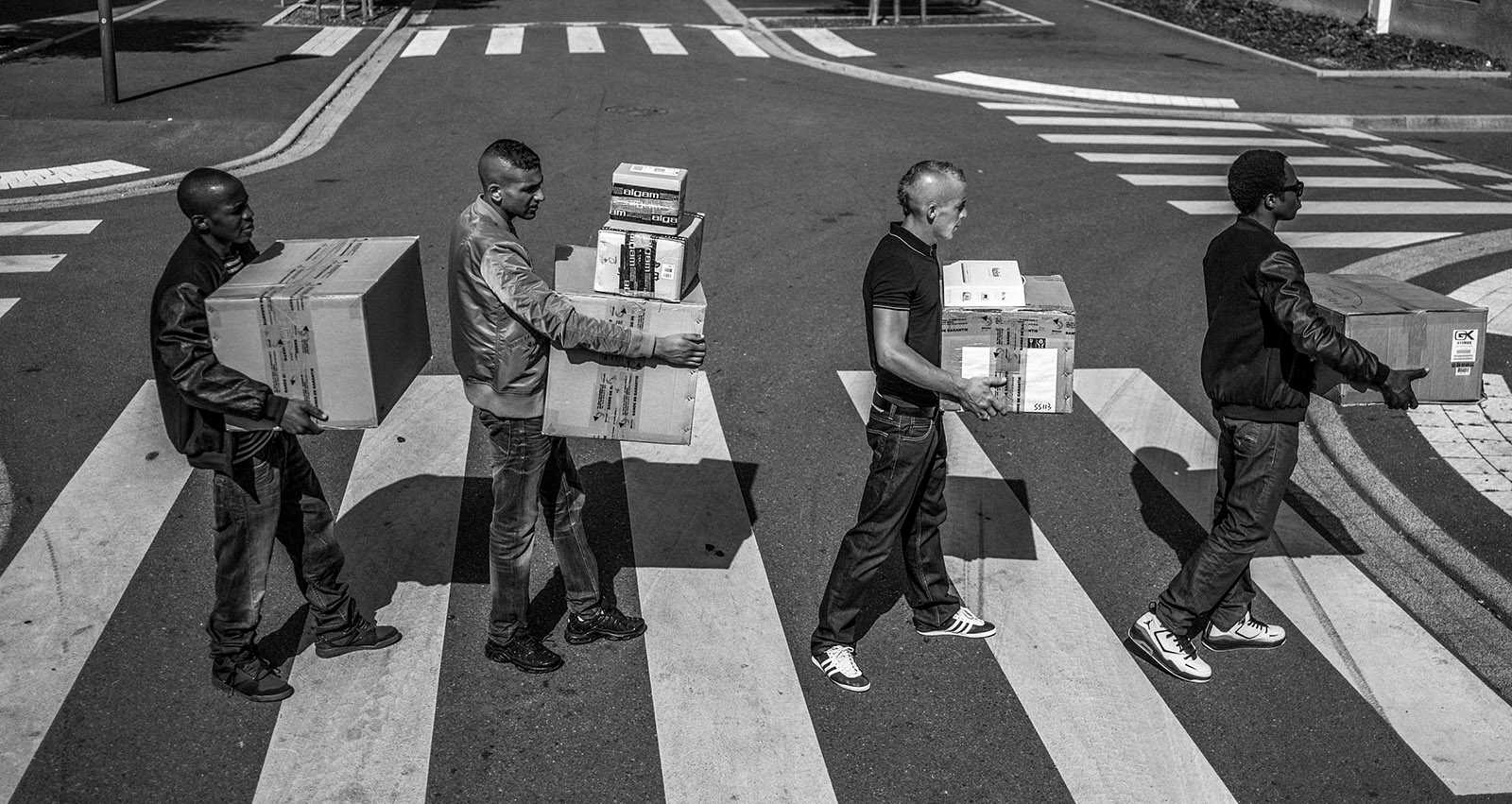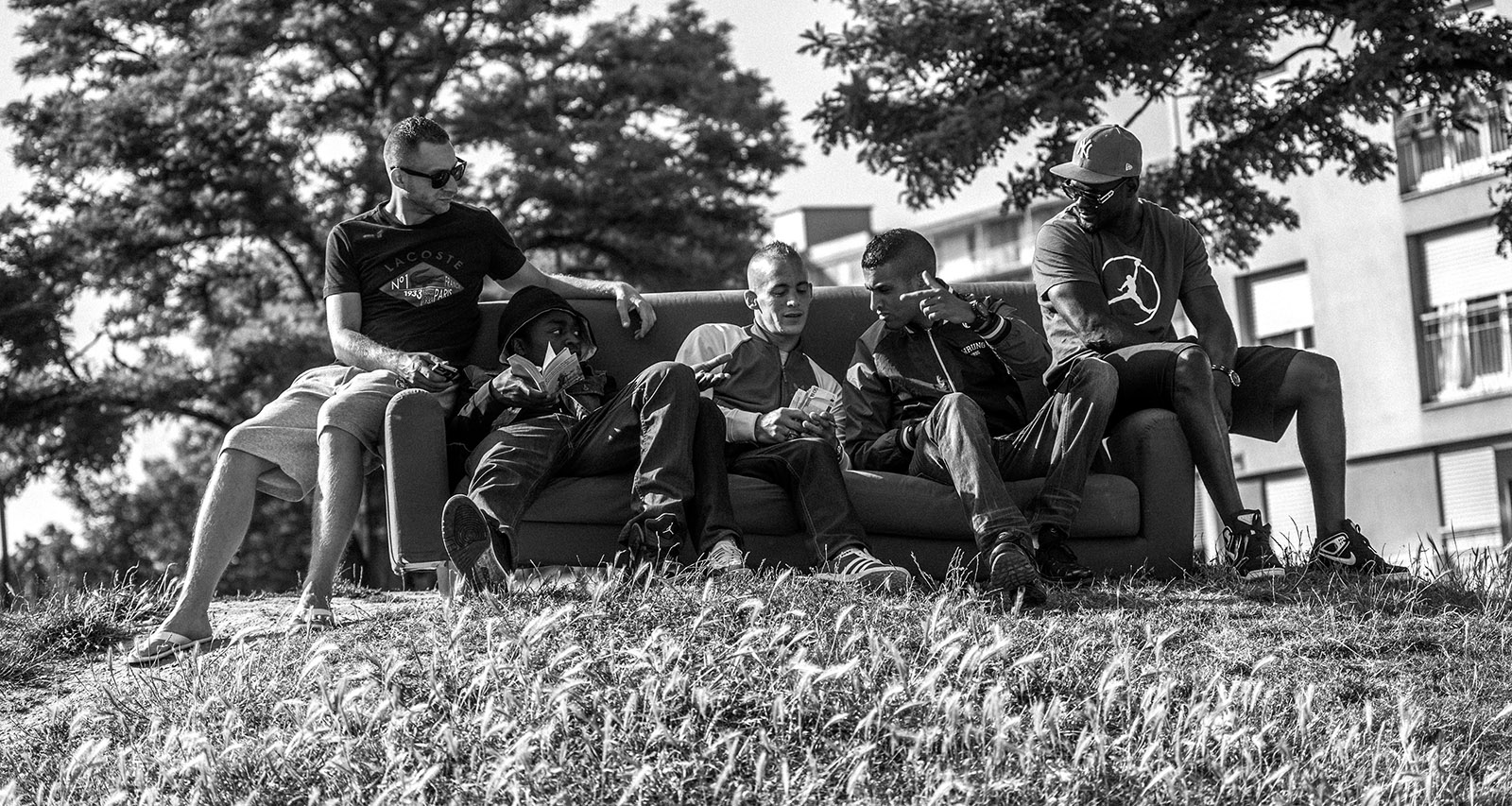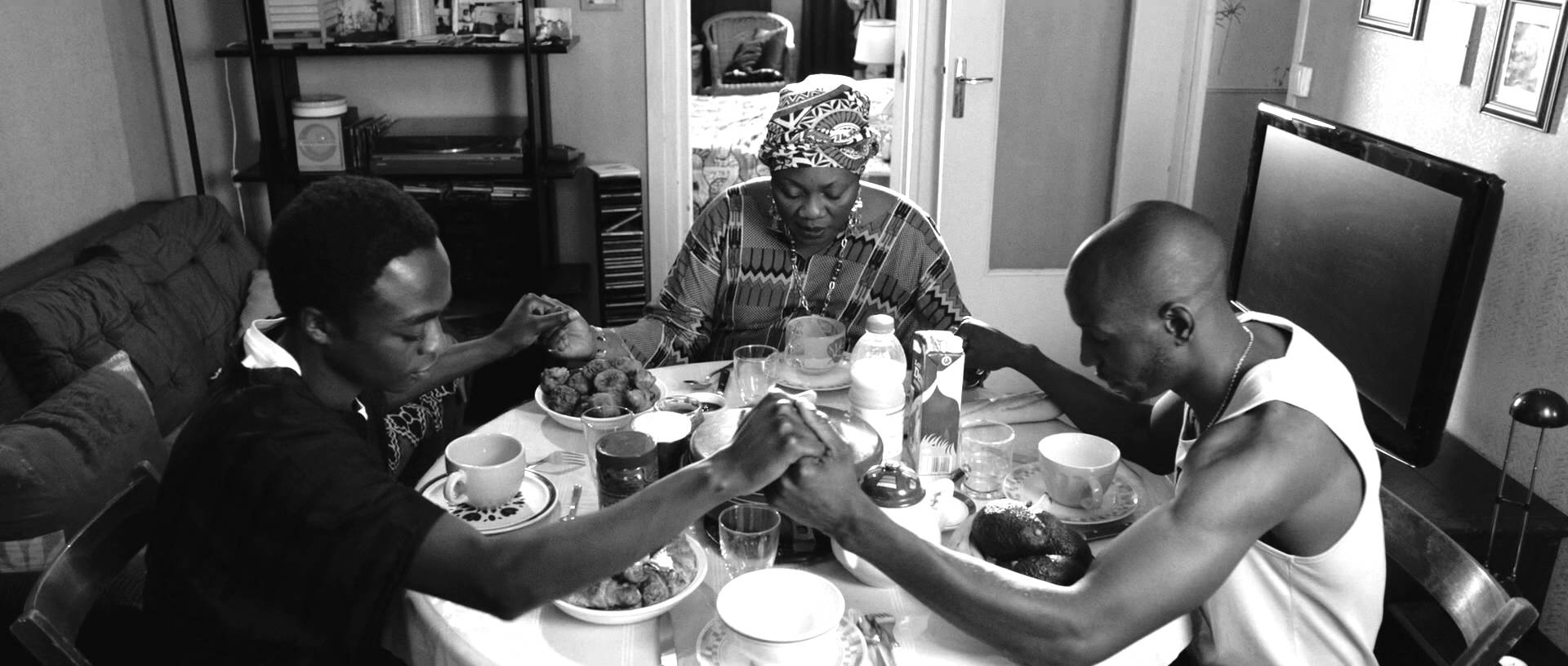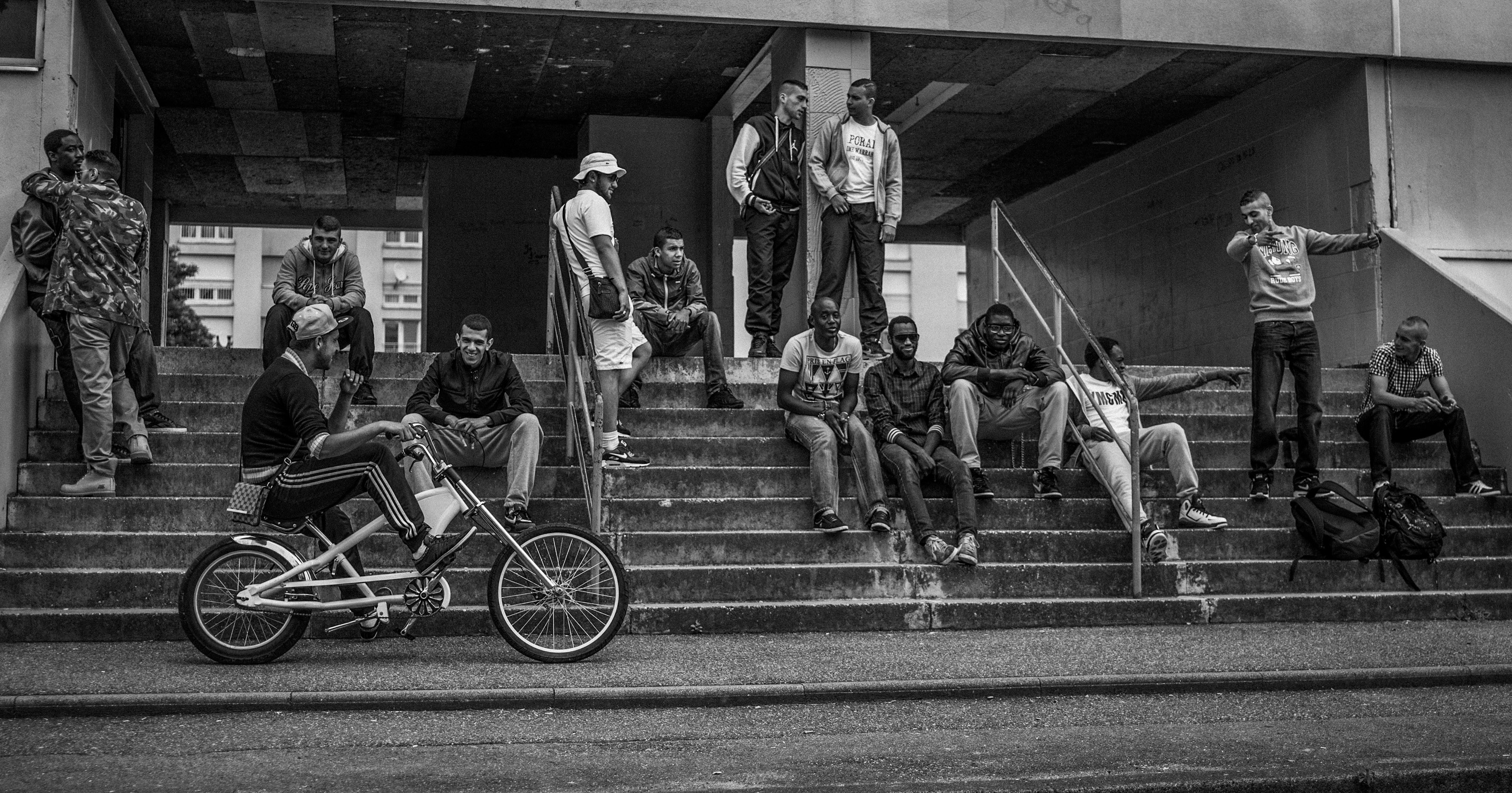Since Abd Al Malik first appeared in the French slam poetry circuit at the start of the 90s, he’s played a crucial role in the contemporary cultural scene. Raised on the rough side of Strasbourg (a small city in the Alsace region), the rapper of Congolese origin had a tough beginning, including dealing and all the experiences associated with street life.
He found his salvation in literature, music and Sufi Islam, a religion that he embraced after a friend was murdered in front of him.
As an artist, he transformed these experiences into award-winning books and albums as well as the critically acclaimed 2014 movie Qu’Allah bénisse la France based on his autobiography.
He has now reinvented himself as a musician releasing an album with Laurent Garnier, the iconic French Touch producer. The result is Scarifications, a collection of raw, deep beats and strong lyrics that describe his ascension from the ghetto to the French intelligentsia.
Adriana Ferreira Silva met him for a chat in Paris a week before the album’s launch to talk about music, cinema, literature and hope.
Adriana Ferreira Silva: In comparison to your previous albums, Scarifications is completely different. What changed?
Abd Al Malik: Life changed. I never do my albums deliberately. I never say ‘I will do it this or that way’; it’s life that determines what happens. In 2007, Laurent Garnier went to see my concert in Paris and after the show he looked at me and said that we should work together.
That same year, we were at the Montreux Jazz Festival and he invited me to take part in his gig. It was a wonderful experience and we promised that one day we would do something together but we never had the right occasion.

So, when did it finally happen?
When I was doing my first movie, Qu’Allah bénisse la France. When I was younger, I lived in Strasbourg, close to Germany. My friends and I used to hangout at German clubs that played techno, house and disco.
The beats are strong, raw and sometimes very dark.
So, for the movie’s soundtrack, I wanted something that had that. I started to do some tracks with my brother Bilal, who is my business partner but we didn’t like it. So, I invited Laurent Garnier and after three or four songs, we knew that we had an album – voilà!
What was the album-recording process like?
My brother Bilal and I created some ‘monsters’, that’s what we call lyrics and sounds that don’t have a final form yet. We sent this material to Laurent Garnier, who recreated everything. The beats are strong, raw and sometimes very dark.
What kind of mood do they reflect?
I talk about personal issues that sometimes are dark but always have an opening for hope. The world is difficult but if we want to really change things we can’t be contaminated by exterior problems.
For me, there isn’t any difference between high and low culture.
Laurent has worked this meaning into something atmospheric that is dark but also has a strong rhythm. It’s like the French quote ‘danser sur un volcan’ which means ‘to dance over a volcano’. Sometimes life is this volcano.
What are those scarifications?
They are different types of failures. At the same time, they are scars on the soul. When we talk about ‘scarification’, we were also thinking of scarification rituals practised in some African countries and rites of passages when coming of age. I’m not talking about injuries but about the difficult situations that we need to overcome.
What inspired you during the creation of this album?
While I was working on my first movie, I kind of went back to my interior world. I talk about all of the difficult things I’ve been through and how art, literature, music, culture helped me to overcome them and to find meaning in my life. Because it is culture that finally allows us to support life. I’m talking about my own history but you will find some coincidences with your own. The arts promote this connection.
You’ve mentioned that the writer Albert Camus was also an important influence on this album.
Camus is a reference that I’ve been carrying with me since I was really young. He used to say: ‘There isn’t love for life without the despair to live’. That means in our life there are a lot of wonderful things but at the same time there’s suffering, desperation and sadness. However, we can not be contaminated. We must move forward. We are always dancing over a volcano.
Who are the other writers that you have been influenced by?
All the authors I love are linked with this ideal that we must go forward despite the difficulties, like Aimé Césaire for example. I am also interested by philosophers like Seneca. These authors tell us to never mind the scars, we are alive.
In your lyrics, you mix these authors with references to street culture…
For me, there isn’t any difference between high and low culture. The importance is that we, the artists, can project our interior world through music, cinema, paintings and because of that it is important to shine a light upon them. All artists form a community responsible for politics that can save the world because we have this power to create harmony, to bring the people together.
The essential is to express diversity. The world doesn’t have one unique face.
Why did you decide to shoot your own story in Qu’Allah bénisse la France?
It isn’t because my life is fabulous. I was in the middle of a crossroad of experiences in my life: it was important for me to show my spiritual findings and the music in the hood. I also love cinema, which is a summary of all the arts: literature, music etc. Becoming a filmmaker was a dream.
Thanks to you and filmmakers like Céline Sciama (Girlhood (2014)) French cinema is becoming more diverse. Did you consider this when you were doing the movie?
Not really. The fact that Abd Al Malik exists as an artist is a form of black activism. It’s a way to show the complexity of French society. For me, the essential is to express diversity. The world doesn’t have one unique face.
But sure, it is important to put black actors in roles such as lawyers and doctors. When black people see these movies, we think we can also be in one of these professions and that changes the audience’s perception. If we only see black actors as robbers or dealers, we feel convicted. My main goal is to show diversity, which is a kind of activism too.
You have been criticised for saying that the journalists from the newspaper Charlie Hebdo should’ve been more responsible when publishing cartoons with the Prophet Muhammad…
The most important thing that came out of that was that we could start a dialogue. The problem is that these conversations should arrive at some kind of good conclusion and that hasn’t happened yet.
"Je crois que c'est donner beaucoup de pouvoir à Charlie Hebdo, qui était un journal sur le déclin." F. Pinaud http://t.co/RfhE36Ibap
— EVittoz (@EVittoz80) February 26, 2015
We focus our attention on the buzz, on the polemics and things don’t really change. The main subject is that globalisation has been mixing people that have never been together before and we need to find a way to live in peace. The question we need to answer is: ‘How will we create a soul for the globalisation process?’
Ten years ago, the ‘banlieues’ of Paris were burning with young people protesting against violence committed by the police, lack of opportunities and other social issues. Looking back, are things better or worse?
Unfortunately, not really. There are a lot of things to do. In reality, France is divided between people who live in the ’cités’ and the people who live in the wealthy parts of the country. The people from the ‘cités’ don’t have the same opportunities. I’m not talking about colour; it’s more about social status. It’s sad that a country like France doesn’t provide the same hope and opportunities for everyone.
What’s it like being a father and raising three children in this crazy world?
Children follow examples, we don’t have to talk a lot: the most important is to educate our children by our own actions. We can’t talk about values if we don’t practice these same values.
What are you working on now?
I’m always working on different things! Right now, I’m writing a new book, preparing my next movie and starting the tour for the Scarifications album.
Follow Abd Al Malik on Twitter @AbdAlMalikMusic

